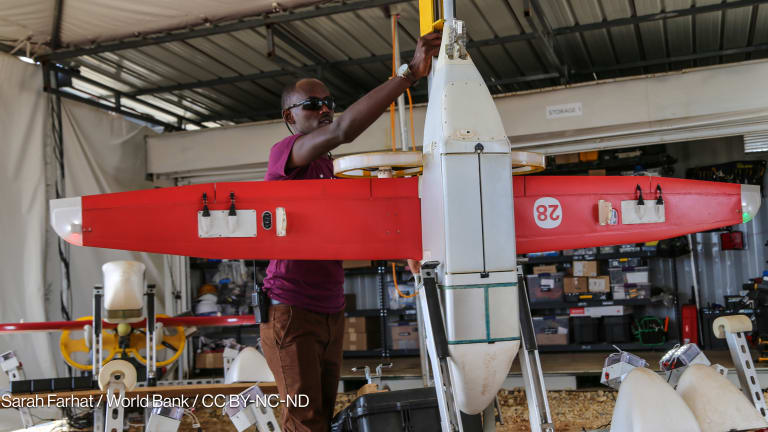
Eric Sorensen is always keen to find out where Haiti ends up on the yearly World Bank’s index on ease of doing business. So far, he’s seen no surprises: The country, considered the poorest in the Western Hemisphere, perennially finds itself near the bottom of the list..
And reality on the ground bears that out, according to Sorensen, who leads Carbon Roots International, a start-up producing innovative fuel: charcoal made not from wood but from agricultural waste.
“There's a lot of logistical hurdles obviously that are involved in working in a place like Haiti … everything from trying to register a company; it took us a year and a half to just getting goods, if we need to do that,” he told Devex.
I spoke with Sorensen previously, several months after CRI won a grant from the U.S. Agency for International Development’s Development Innovation Ventures. The organization came to life indirectly as a result of the massive earthquake that hit Haiti’s capital in 2010; it operates mainly out of the northern part of the country.
Similar to other innovators, Sorensen noted the challenge of raising funds for the work of his organization. And the problem is more acute in Haiti because of the long history of failed development projects there, causing some funders to shy away from investing in the country and local communities to feel suspect of anyone pitching projects to them.
“For the amount of column inches on a newspaper, or the words written, or conferences organized, I see comparatively little actual investment in local companies, organizations, social enterprises,” he noted. “And part of that, in Haiti specifically, is linked to this kind of perception that I often encounter that is somewhat well-earned: that it's very complicated to launch a business in Haiti and run it and to grow it successfully.”
So what does Sorensen and his team do?
“On the fundraising side, on the business development side, and on the stakeholders’ side, we just have to say, ‘We understand that there's this history, and we're trying to do it better — and here's how and here's why,’” he said.
Sorensen considers CRI fairly successful in raising funds despite the odds. Check back tomorrow to learn more about his strategy, including how CRI markets and brands its innovative solution.
You can help shape our coverage on global development innovations. What do you think is an innovative idea? Let us know by leaving a comment below or by emailing news@devex.com.








